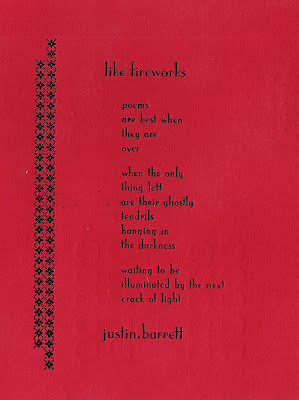
justin.barrett
It was last August when a collective of "outlaw" small press poets had a simultaneous moment of clarity. Tired of the lack of credit and attention given to the small press, and feeling a need to spread the word, these poets, armed with an arsenal of quality poems and an antique printing press, set out to change the world. According to the Guerrilla Poetics Project (GPP) manifesto, they "endeavor to return poetry to whom it was originally intended: the reader. And we feel there is no better way to accomplish this goal than to use the existing hierarchy and structure of the publishing world to our advantage: by subversively hiding high-quality broadsides of high-quality poems inside books in bookstores and libraries to be found by unsuspecting readers". Over the last 43 weeks they have "covertly smuggled" 14,840 broadsides in bookstores across the U.S. and in Canada and as far away as Sweden.
The first broadside issued by the GPP was entitled "like fireworks" and it was written by Salt Lake City poet justin.barrett. Justin has been writing for over 12 years and in that time he has released 4 chapbooks and over 400 quality poems through various outlets. He was the editor of the poetry webzine remark. He started Hemispherical Press in mid-2003.
Currently, Justin is on an indefinite hiatus from poetry, but he is still very passionate about the mission of the GPP. Recently, we asked about this passion and about his decision to take a hiatus.
Orange Alert (OA):I love the concept of the Guerrilla Poetics Project. How did this project come to be, and how has it affected your career as a poet? What has the feedback been like from your broadside "like fireworks"?
justin.barrett (JB): The project started by parallel evolution: a few different people in different places coming up with the same (or similar) idea at around the same time. These people just so happen to all be small press poets who were ready for a change; who were ready for something big and new and inventive. It really hasn't affected my career as a poet. Unfortunately for me, the GPP came about just at the tail end of my current incarnation. It might garner me a few new readers, but that remains to be seen. I still participate in the GPP because I deeply believe in its cause and mission; and I feel the poetry needs to be taken to a wider audience. As far as my broadside, I've not received much in the way of feedback. I was honored to have been voted by a panel of my peers to have the first broadside the GPP ever made. This was pretty much the magnum opus to my career. That alone is feedback enough.
OA: Currently, the first page of your website state that you have "retired" from writing. Are you really retiring? What are some of the reasons behind this "self-imposed hiatus"?
JB: Well, retiring is probably not the right word. One doesn't really "retire" from something like small press poetry, right? Hiatus is more accurate. Basically, there are some things going on in my life right (physical, psychological and emotion) that are eating up all of my energies. Between dealing with these issues and earning a living, I don't have anymore time for poetry. I definitely don't have anymore time for the bullshit, small-press mindset. I gave it a good run (12+ years) and had a few minor successes (relatively speaking, of course). This is good enough.
I don't know if I'll ever write again. I haven't written in months and don't see myself writing ever again, but the possibility hasn't been ruled out. If it happens, and I feel the results are good enough, then maybe you'll see me once again in the pages of the littles.
Some other reasons for my hiatus include: the desire for something more than scatological and misogynistic poems; the need for less bickering and backstabbing in the "community" of writers; tired of seeing mediocrity being lauded and applauded time and again.
OA: What is your opinion of the current state of poetry? Is it thriving in an internet era? Is it being watered down by an overabundance of outlets ( i.e. blogs/myspace/lit zines, etc)? Is there an audience for the modern poet?
JB: Thriving? Absolutely. I say it is thriving, but only in a cannibalistic way. The people reading the poems being published today (especially on the internet) are fellow writers who are hoping to also be read by the same writers they are currently reading. It's a massive circle jerk. I don't think this is necessarily a bad thing, it just depends on your point of view and intent. For a long time, it was okay with me to be published my small magazines who only sell to other poets, and to be read only by fellow writers. But, ambition is such that the stakes must get larger and the audience must grow and the scope must get broader. That certainly happened to me, and others I know. And in that frame of mind, it's hard to not get disgruntled.
As for the overabundance of outlets watering down the product, I say it is definitely happening; but it's not across the board. Places like blogs and myspace definitely water it down as there is no editing. Some e-zines are guilty of just accepting whatever comes across their email (or most of it, at least) and this also contributes to the watering down. However, the onus is on the editors to select good poetry (of which there is much) and to put out a good product. Just as there are plenty of mediocre writers, there are plenty of mediocre editors. There are even some bad ones. This only leads to a further breakdown of what the public sees as "poetry". 15 years ago, only those editors who were diligent and who cared about putting in the time would publish a magazine. Those editors would select only the best of the best that came to them (through traditional mail) and the whole thing took a lot of time and energy and passion. Nowadays, a weekly poetry e-zine is easy to put together and takes very little work. This ease hurts the poetry community.
Now, lest I come off as an elitist, I don't feel that most venues are bad, nor are most writers and editors (well, maybe writers). I DO feel there is a definite audience for modern poetry. I think, though, that the biggest obstacle is that this audience isn't aware of the fact that they like modern poetry. Most people, when asked to think of poetry, think of Shakespeare, Robert Frost, Dylan Thomas and then the people they see on slam poetry television shows screaming their hip observations into the void. What they are unaware of is the fact that there are many writers out there right now, writing poignant, important poems t hey can relate to; poems that will touch them and mean something to them and teach them a little about themselves. This part of poetry hasn't changed; only the language and structure.
OA: Who are some of your biggest literary influences?
JB: Mark Strand, Charles Bukowski, Walt Whitman, Katherine Dunn, Gerald Locklin, Harry Crews. There are many others who have hit me in the various stages of my life; some contemporary some not; some known some not. But, the above poets and writers are the ones I seem to always come back to.
OA: What is next for justin.barrett?
JB: Next for justin.barrett is a few months/years/decades off; trying to get things in order and to survive. For Justin Barrett, the same. There used to be a dichotomy, a difference between the two. Now, there is no difference, and I'm trying to come to terms with that.
Bonus Questions:
OA: Coffee? If yes, what is your favorite type of coffee and where is your favorite coffee spot?
JB: No. I hate coffee. It tastes like dirt. Plus, caffeine and I don't get along.
OA: Who are some of your favorite musicians currently? Do your listen to music while you write?
JB: In list form:
The Shins, The Beatles, The Aggrolites, Modest Mouse, Rodrigo y Gabriela, Smashing Pumpkins, The Sea and Cake, The Fruits Bats, The Bees, Clap Your Hands Say Yeah. To name a few that are in my current rotation.
I used to listen to music when I wrote, especially jazz, specifically Miles Davis.
OA: List your five favorite chapbooks on your bookshelf currently.
JB:
First Touch -- Glenn W. Cooper
Thru The Heart of This Animal Life... -- Christopher Cunningham
Deep Surface Fissures... -- Hosho McCreesh
The Effects of Drugs and Prostitution -- Owen Roberts
The Active Ingredient -- Gerald Locklin
For more information of Guerrilla Poetics visit their website, and for information on justin.barrett and to read a good sample of his work visit his website.
+by+Nick+Volkert).jpg)
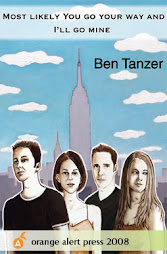

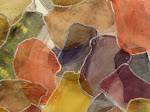









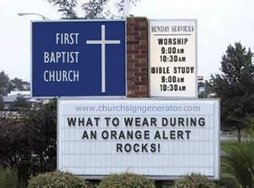





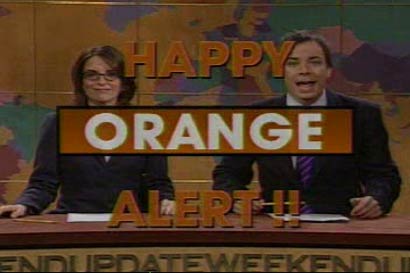


7 comments:
justin.barrett is a goddamn freak/genius and should be shunned/applauded simultaneously.
jb., great interview. and indeed, the quality of small press poetry has declined rapidly in the last five years specifically, with the same poem being rewritten and republished by the same bad writers again and again and again.
ha! i've been shunned applauded simultaneously for years! :)
thanks, Chris. a few of us have the same views on the current state of the small press. for years i just railed against it. now, i've got some ammunition, in the form of the GPP, with which to fight it.
as for being a goddamn freak/genius, i don't know: i've definitely been damned by god, and "freak" has been used on more than occassion when describing me, but genius? hmm....not so sure about that one. ha!
oh yeah...and much thanks to Jason for the opportunity for this interview. it was fun.
No problem, it is my honor to promote quality work with a noble cause.
The ethos of self-righteous hypocrisy is astounding, in more than just the GPP.
don't worry. kevin is ALWAYS angry.
no worries at all, for the pathos for mediocrity astounds even the self-righteous.
now, if kevin were able to back up his anger with more than just epithets and suggestions. we might get somewhere...
don't worry, baby. you keep penning your immortal words and someone's BOUND to notice eventually. right?
I'm not angry; i'm passionate!
As for clarification, as far as it relates to this offshoot of the problem: 'the quality of small press poetry has declined rapidly in the last five years specifically, with the same poem being rewritten and republished by the same bad writers again and again and again': look no further than some of the writers at the GPP.
Yes, my words go wholly unnoticed.
Post a Comment